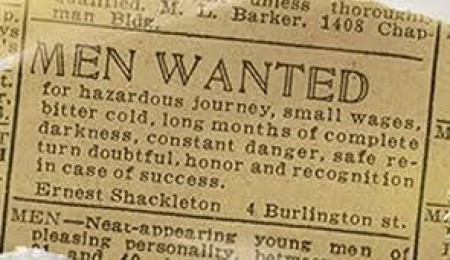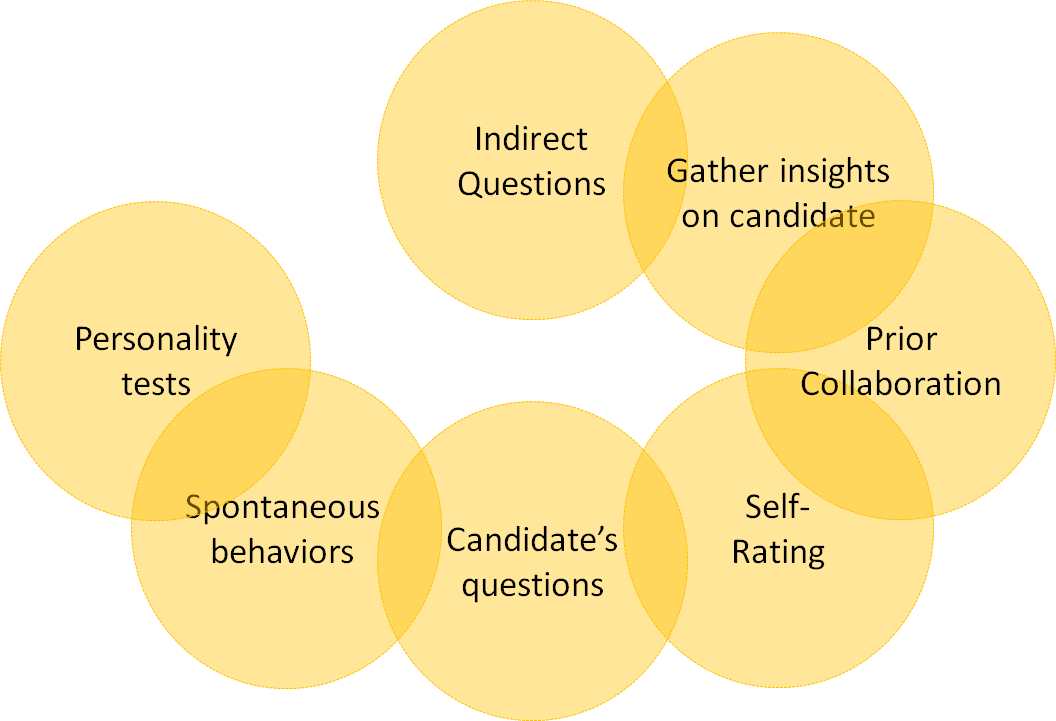1913 an explorer named Ernest Shackleton was about to launch an expedition in the last unexplored sea of the planet. He set himself to the challenge of traversing the Antarctic, nothing less. A few days into the expedition, the boat got stuck in pack ice until it finally cracked under the surrounding pressure causing it to sink. Crew members were all safe. They boarded the rescue boats and navigated for 800 miles before reaching safe harbor. The return trip lasted long months. Besides the extreme conditions, at no point in time were there any internal fights or mutiny.
How come?
Because all crew members demonstrated the exact personality traits expected for this kind of mission. Just read the recruitment ad posted by Schackleton in The Times.

The crew was fit for the challenge!
When you have the right people onBOARD, you can manage when things go overBOARD -K
Click to tweet
Understanding candidates’ cultural fit is crucial. After 20+ years involved in recruitment, here are the 7 sources of information I use to gauge a candidate’s fit to the company culture.

1. Use personality tests that incorporate 1. competencies, 2. motivations & 3. values. There are plenty of them online and you’ll get valuable information.
2. Whenever you can collaborate with the candidate prior to recruitment do not hesitate. Many companies now give paid freelance projects or onboard the candidate for a full week in-house when possible before making the final call. If you cannot collaborate run at least a case study and notice the candidate’s discussion skills and ability to accept feedback. BMW went as far as building a fake assembly line where recruiters can watch candidates in action.
3. Ask the candidate to rate her/himself on recruitment criteria using a scoring system and compare them to your ratings. Devote 15 minutes to discuss any significant perception gap to gauge self-awareness and don’t forget you may be wrong ☺.
4. Ask indirect questions with a large scope that will help you read through the personality of the candidate. Here are a few you might use:
- “What is your most significant success?” / “What are your biggest challenges?” Those two questions are powerful to unveil the true motivations of the candidate. The selected answer speaks a lot about the candidate’s values and priorities. So do not stick to her/his direct answer but rather be curious to check the “why” behind.
- “Tell me about a time you failed” / “Tell me about a time you got negative feedback and how it went?” Those questions will inform you about the candidate’s ability to manage her/his ego, how self-aware s/he is, reaction to adversity, responsibility level and courage to state unpleasant facts in a transparent way.
- “What are your preferred discussion topics?”. Keep this question among the last as the interview by itself is already an opportunity to check this element. Regarding answer’s interpretation, I use a quote from Eleanor Roosevelt “Small minds discuss people, average minds discuss events,
great minds discuss ideas”. - “Who do you admire?”. Those are the people/cultures/companies that have the most influence on the candidate forging hers/his values. Asking WHY s/he admires those persons can help fathom the values of the candidate.
- “Tell me about a time you had a conflict at work”. This one helps measure EQ, courage & ego.
- “What’s most frustrating to you?” Of course, this relates to the ability to manage frustration but at times it may reveal valuable ego related concerns.
- “Tell me about a moment you broke the rules”. “What is your best hack (life or business) you are proud of?”. While unsettling others by flouting social norms at times is important to be able to break free from commonly accepted rules, this does not exclude the need to still respect others. Pay close attention to collateral damages underlying in the candidate’s answers to your questions.
- “Walk me through your normal day”. This question should not cover only the workday but the full day; i.e. from wake-up to sleep. Its purpose is to unveil whether the candidate has put in place a self-development program be it reading, listening to audio books, training and the like.
For all the above questions, you can ask for a second example if you believe it can help to keep in mind that the objective is to assess the candidate’s value fit with the company’s culture.
5. Also, give the candidate quality time to ask questions. This reflects her/his priorities (values, objectives, concerns…) giving you valuable insight into her/his personality. It is recommended to inform the candidate beforehand that this part of the interview will last around 20 minutes to yield meaningful insights.
6. You can gather more insights about the candidate through social media. My preferred source is LinkedIn. I focus on the “recommendations” section paying special attention to “Why” people think the candidate is a great person to have on board. Twitter also tells a lot about areas of interest.
7. Scrutinize spontaneous behaviors before, during, and after the interview. Did the person say hello to everybody? If s/he did so was it done in the same way or did s/he act differently depending on status (e.g. skipping the doorkeeper if any)? For example for candidates flying in for interviews, Zappos sends a pickup driver to the airport. They later asked her/him to debrief on how the interaction went with the candidate. Only nice people are accepted. If you want more weird ways to tap into candidates’ personalities read this article.
TO SUM UP

Those are 7 different sources allowing to cross-check information to build a well-rounded opinion.
At last, even when recruitment is done, use the first 3 months to pay close attention to the above criteria and take quick corrective actions.
Please help enrich this article with complimentary assessment methods by adding your suggested approaches by commenting.
If interested in learning how to work with your nature and not against it, check out my book at WorkWithYourNature.com
